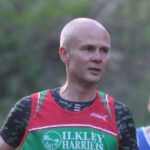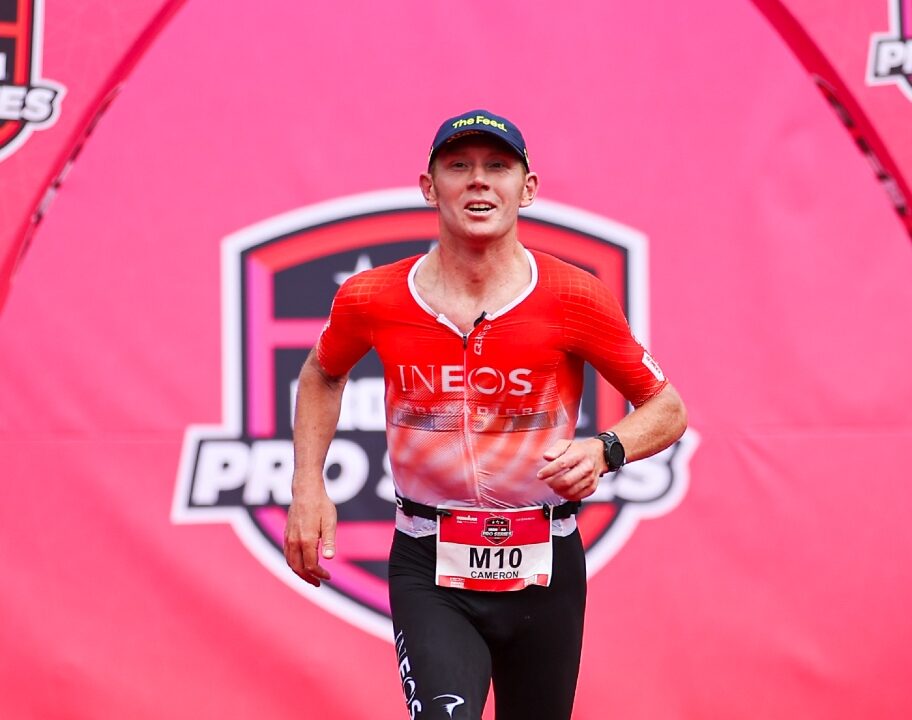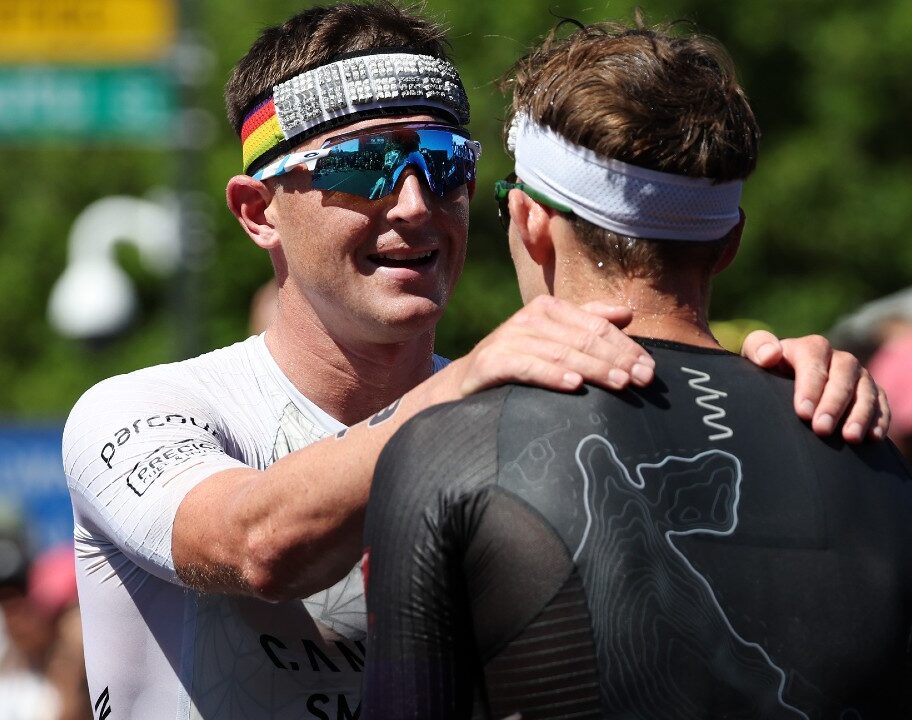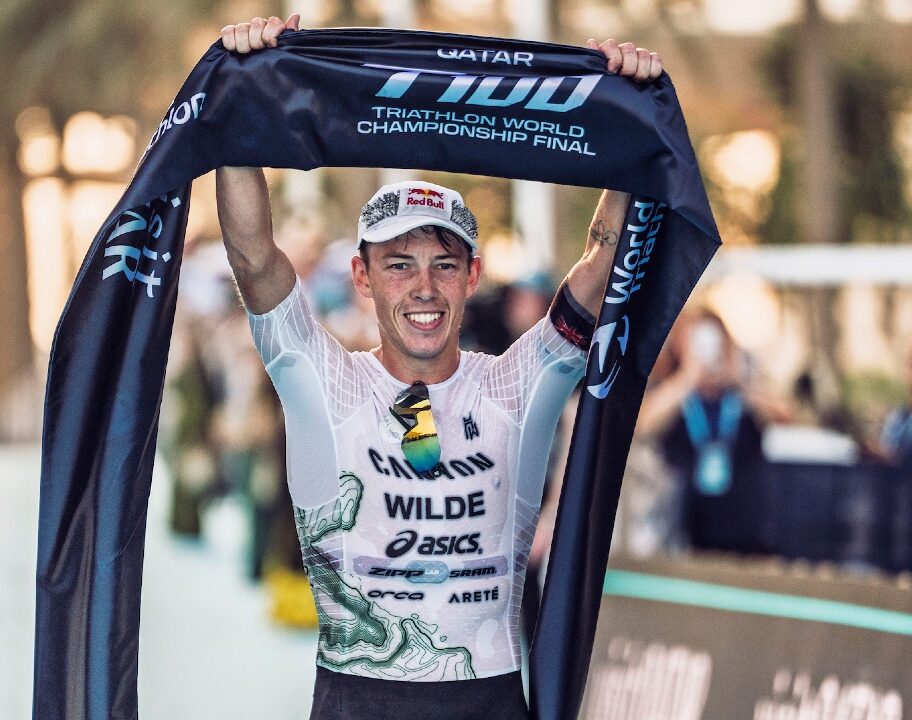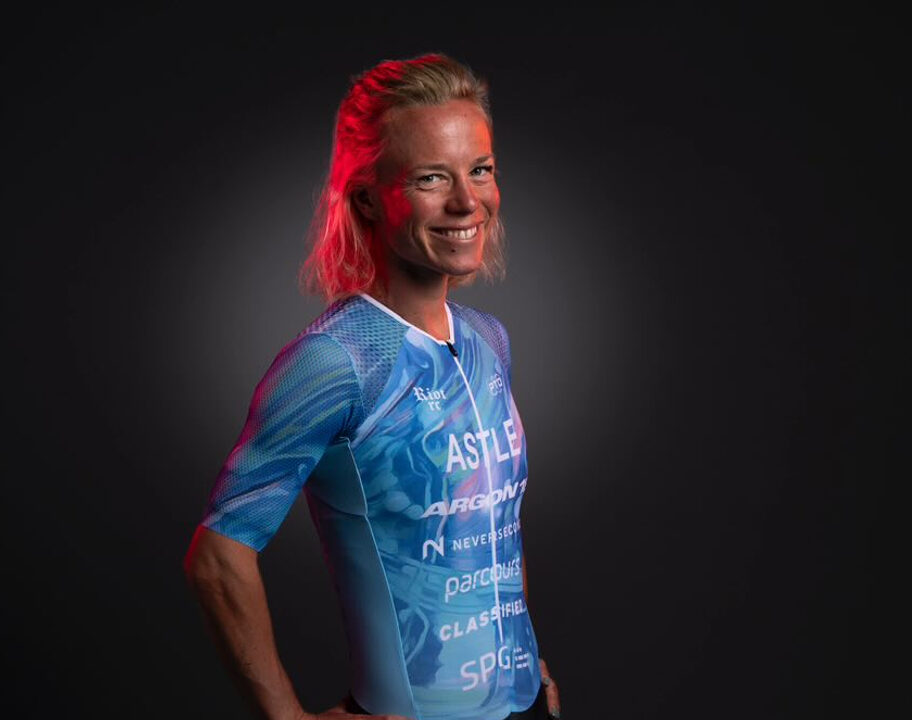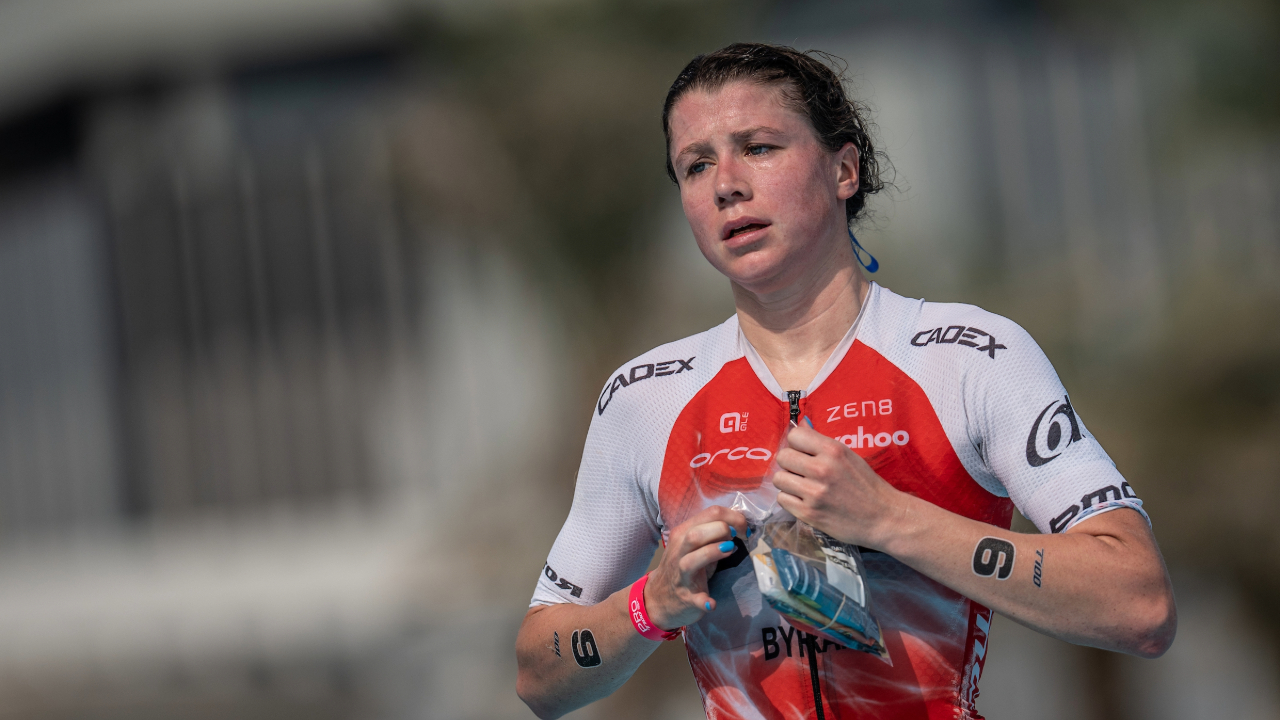Matt Hauser put down his Olympic marker with victory at WTCS Hamburg at the weekend – and did the race also suggest some incredible run times could be in the offing in Paris?
All the talk ahead of the men’s race at this summer’s Games has been around the battle between Alex Yee and Hayden Wilde, second and third respectively at the last Olympics in Tokyo.
Reigning champ Kristian Blummenfelt also still has his supporters – but Aussie star Hauser has done little wrong this year.
He started with a win at the Oceania Triathlon Championships in Taupo and then took second at WTCS Yokohama before his success in Hamburg which saw him burn off Vasco Vilaca and Pierre Le Corre when it mattered on the run for a clear-cut success.
Hauser a contender?
And speaking afterwards to World Triathlon he said it underlined everything was on course for the race which really matters in a couple of weeks time.
“I am really happy with the win,” he said. “I feel good now. Going into Tokyo was a different story.
“I am in some of the best form that I’ve ever been in my career. I don’t fear anyone, I can’t fear anyone. We are best friends on and off the course, but at a race you’ve got to keep the blinders on and just go.”

28 and what in Paris?
And another big take out from the race were some record-breaking run times.
The previous men’s WTCS best for 5km was 13:55, with the 14-minute mark only having been beaten three times – by Mario Mola (twice in Hamburg) and Javier Gomez (in Stockholm).
Of this year’s Paris contenders, the joint quickest is 14:07 by dynamic duo Yee and Wilde.
It should be noted that the updated Hamburg course this year was reportedly a fraction under 5km but the times were still astonishing – Hauser clocking 13:40 and then Vilaca and Le Corre going 13:49 and 13:50 respectively, with fourth and fifth Jelle Geens (13:58) and Casper Stornes (13:59) also just dipping under 14:00.
Blummenfelt has already predicted something special over 10km at the Olympics, telling TRI247 late last year that he thinks 28:40-something will be required, which would be 40 seconds quicker than his Tokyo split.


